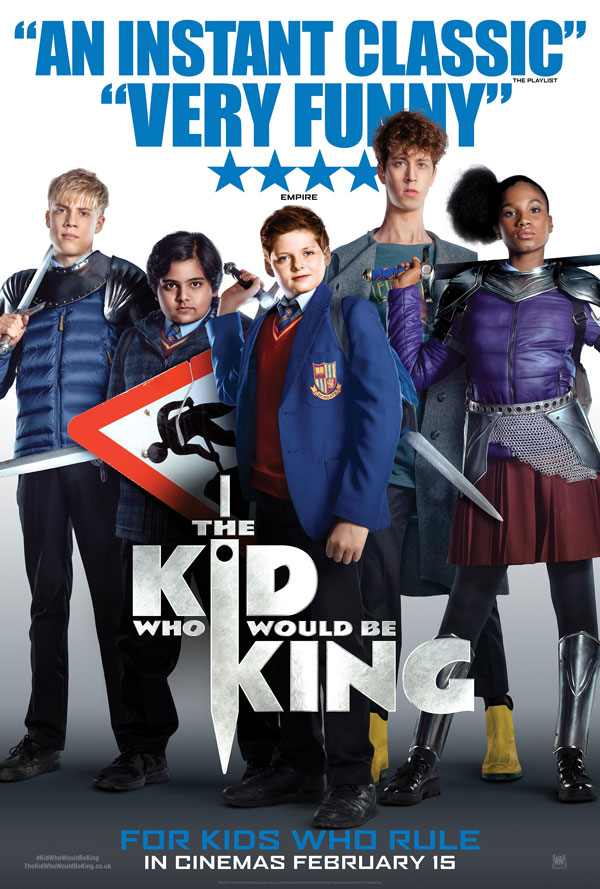This rendering of the “knights of the round table” tale transposes some of the main themes of the legend into a modern milieu, with bullies and absent fathers replacing the more ambiguous aspects of the story. This so-so premise involves accepting that two twelve-year-old boys are sufficiently au fait with the legend to be able to enter as players into its narrative thread with relatively little confusion or disorientation, all of which would be more plausible before globalised social media.
Director Joe Cornish began in comedy with a double-act routine that riffed on his obsessive knowledge and affection for films of his childhood and the construction of meta-textual jokes – sometimes quite literally – so it seems fitting that his re-imagining is of Arthur as a bullied schoolboy called Alex, played by Louis Ashbourne-Serkis (yes, that one), who recruits his even more downtrodden but very sweet friend named Bedders (evoking Sir Bedevere) played by Dean Chaumoo.
Further plot shenanigans involve the very bullies evolving into the members of the round table, utilising a not-wholly-convincing conceit that portrays their bullying as a manifestation of their own alienation which can be remedied through redirection in the form of a quest.
Aiding this process is the delightful Angus Imrie (son of Celia), who is a colourful and kinetic presence as the younger Merlin to Patrick Stewart’s elder incarnation. Imrie’s nervous energy and otherworldliness anchors the material, which at times seems to lack weight and a convincing sense of the import of the Arthurian legacy. The film is buoyed whenever he is on screen and the actor’s age and experience seems to convey a sense of surety in his scenes as Merlin cum-Doctor Who figure, without whom the two-hour running time would seem excessive.
Cornish has an undeniable affection and appreciation for the cinema of his youth and these tropes filled the show he lovingly crafted with his childhood chum. Watching The Kid Who Would Be King is like seeing these early stop-motion and Lego recreations of Star Wars and fantasy stories enacted in some wish fulfilment fantasy. His handling of his two leads is excellent and elicits fun and believable performances from both, although this is at the expense of the rest of the cast and in some ways Imrie’s electricity just highlights their youth and inexperience.
There are some bum-notes where gags sputter, such as a mishandled allusions to Brexit in the Morgana-enslaving-the-Britons detail. There also exists a determination to maintain a tone of niceness and civility throughout the story, emphasised by a recitation of the Chivalric Code outlining the qualities of bravery, courtesy, honour and great gallantry toward women, but this ultimately has no bearing on plot except to remind us of similar (and in some case superior) fare from the decade Cornish is drawing from.
Whilst Cornish waits for the inevitable project in La-la-land, The Kid Who Would Be King has provided more evidence that he can work with both established names and non-actors. Perhaps more tellingly, it proves that he can replicate the double-act chemistry that he and Adam Buxton developed and honed for nearly two decades.
